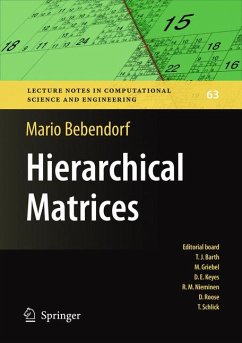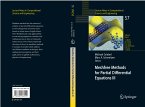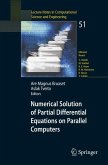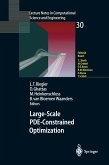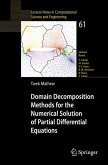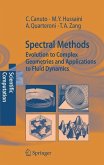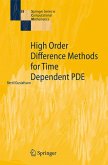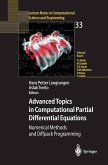Hierarchical matrices are an efficient framework for large-scale fully populated matrices arising, e.g., from the finite element discretization of solution operators of elliptic boundary value problems. In addition to storing such matrices, approximations of the usual matrix operations can be computed with logarithmic-linear complexity, which can be exploited to setup approximate preconditioners in an efficient and convenient way. Besides the algorithmic aspects of hierarchical matrices, the main aim of this book is to present their theoretical background. The book contains the existing approximation theory for elliptic problems including partial differential operators with nonsmooth coefficients. Furthermore, it presents in full detail the adaptive cross approximation method for the efficient treatment of integral operators with non-local kernel functions.The theory is supported by many numerical experiments from real applications.
Dieser Download kann aus rechtlichen Gründen nur mit Rechnungsadresse in A, B, BG, CY, CZ, D, DK, EW, E, FIN, F, GR, HR, H, IRL, I, LT, L, LR, M, NL, PL, P, R, S, SLO, SK ausgeliefert werden.
From the reviews:
"Hierarchical matrices are a class of usual matrices which are data-sparse, but they can be treated in an efficient way. ... The monograph is divided into four chapters. ... The book has an appendix, and concludes with a rich bibliography of 263 references, and a comprehensive index. The monograph under review is without any doubt a very carefully prepared one that will be a valuable resource for researchers interested in hierarchical matrices." (Elena Pelican, Mathematical Reviews, Issue 2009 k)
"A presentation of hierarchical matrices, their properties, their numerics, together with examples. ... The volume will ... be of high value for lectures or graduate seminars in numerical mathematics." (H. Muthsam, Monatshefte für Mathematik, Vol. 157 (1), May, 2009)
"Hierarchical matrices are a class of usual matrices which are data-sparse, but they can be treated in an efficient way. ... The monograph is divided into four chapters. ... The book has an appendix, and concludes with a rich bibliography of 263 references, and a comprehensive index. The monograph under review is without any doubt a very carefully prepared one that will be a valuable resource for researchers interested in hierarchical matrices." (Elena Pelican, Mathematical Reviews, Issue 2009 k)
"A presentation of hierarchical matrices, their properties, their numerics, together with examples. ... The volume will ... be of high value for lectures or graduate seminars in numerical mathematics." (H. Muthsam, Monatshefte für Mathematik, Vol. 157 (1), May, 2009)

